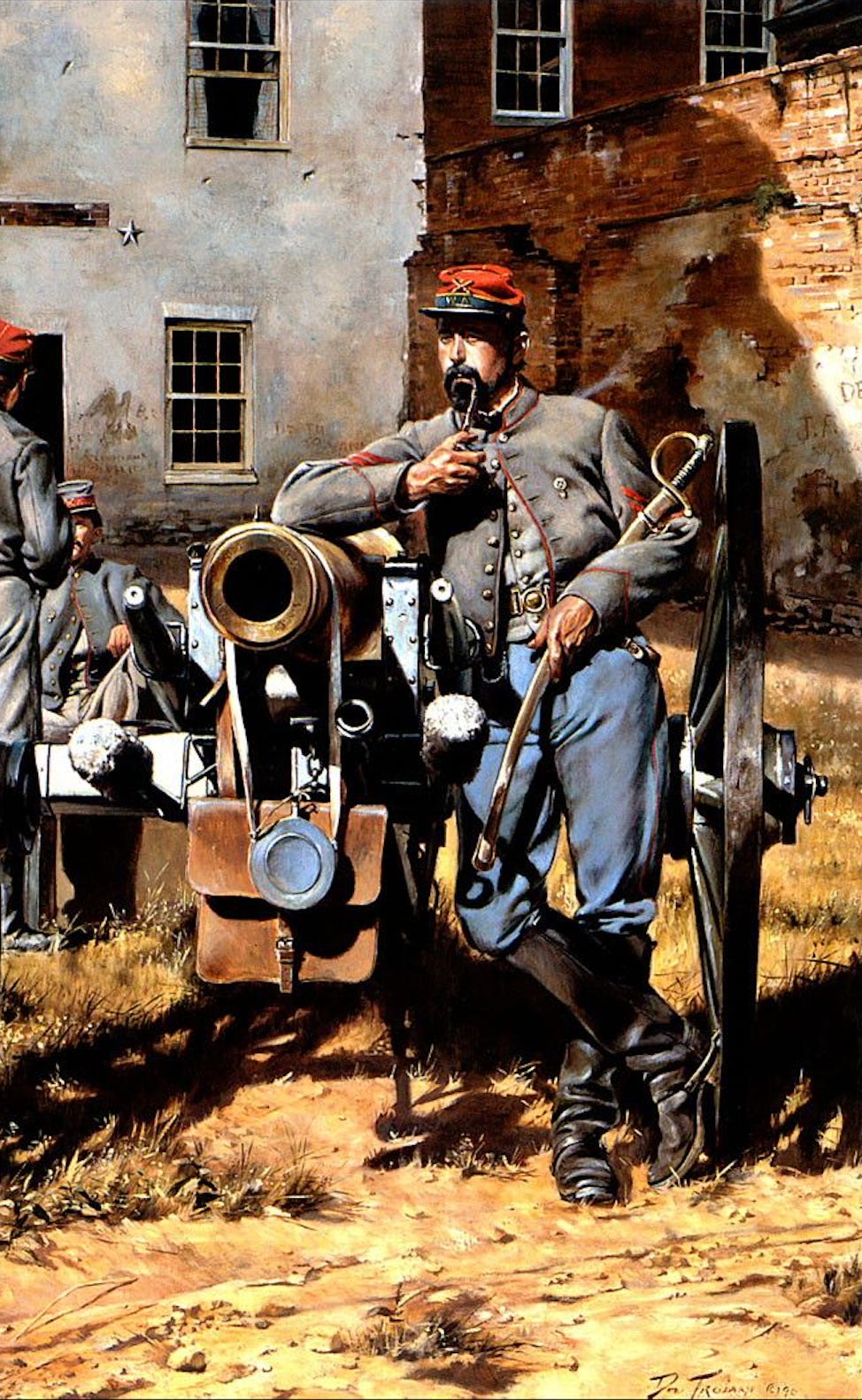Finding Common Ground With a Former Member of the Sons of Confederate Veterans
As much as I enjoy catching up with my good friends in the history field, listening to their lectures, and following them across battlefields, nothing beats the opportunity to talk with the hundreds of attendees during the annual conference at Gettysburg College’s Civil War Institute. They come from all over the country and all walks of life with varying interests in and knowledge of the Civil War.
This year I met a Tennessee native by the name of Scott. We’ve had some wonderful conversations over the past few days. Scott is as passionate a student of the Civil War as they come. He is interested specifically in the Confederacy and the experience of the rank and file. That should come as no surprise given that he has four ancestors who fought for the Confederacy.
Scott is also a self-described recovering Lost Causer and a former member of the Sons of Confederate Veterans, but some might be surprised that he still proudly wears a Confederate kepi, specifically a Louisiana "Washington Artillery" officer's kepi.
There is not a trace of the Lost Cause’s denial of slavery as the Confederacy’s “cornerstone” in Scott nor does he believe that the Confederacy should be celebrated, but he does speak with conviction about the importance of acknowledging the sacrifices and the many hardships that these men experienced during the war.
His understanding of the war is clearly informed by sound scholarship as well as a strong emotional attachment to these men.
I was struck by this for a number of reasons, primarily because it is seems to me that at a time when history has been so overly politicized, there seems to be no place for Scott’s understanding of the war and close identification with the Confederate soldier specifically in our current cultural climate.
I can only imagine the raised eyebrows and suspicious glance from people after learning about the history of his kepi. At that point any chance of a meaningful discussion has been lost.
We are divided in our public discourse about the Confederacy between two extreme positions—one framed by the Lost Cause and the other by a suspicion that any interest or identification with the history and legacy of the Confederacy is an indication of white supremacist sympathies.
This incessant moralizing about the past, the leveraging of it as a political weapon and the tendency to reduce American history down, for example, to 1619 or 1776 and everything they have come to represent has left us with few opportunities to find common ground.
Judgement is the order of the day rather than a good faith attempt to explore the tough questions about the past with people who may not see the world entirely from your perspective or share your political views.
I don’t know anything about Scott’s political views or his position on any of the hot button cultural, religious and legal issues of the day. All I know is what we have already shared with one another over the past few days, but I would like to think that it was enough to make a meaningful connection with one another that hopefully we can build on at next year’s conference.



Wasn't it Grant who is supposed to have said something like, they fought so well for such a terrible cause, in reference to Lee's troops? Soldiers in the ranks, on both sides, endured what we see as unimaginable hardships, both on and off the battlefield, fighting for the survival of their country. The United States soldiers and what they were fighting for I think I understand. The Confederate soldiers and what they were fighting for I doubt that I ever will. You friend sounds interesting.
I am among those “never understand” folk but not due to the white supremacy angle of it. Plenty of that on the Union side too. And this nation did support slavery as an institution for 75 plus years after our Revolution.
I am more struck by the clearly prevailing mindset that secession was acceptable because they felt we were just a confederation of states, not a wholly committed,united nation. Even ignoring slavery completely (which is huge), I will never get past the “he fought for his state” or “they fought for their freedom” which is worse.